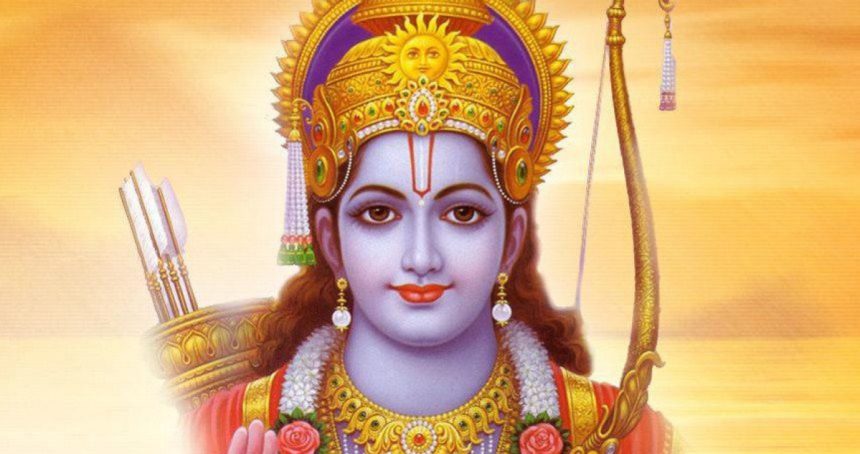Lord Rama is still barred from returning to his birthplace, thereby prolonging the agony of his worshippers.
Diwali, or The Second Exile

Prologue
Every year on a moonless night in the month of Kartika, the Hindu festival of Diwali or Deepavali is celebrated in remembrance of Lord Rama’s return to his home – Ayodhya – after the vanquishing of Ravana, the evil king of Lanka, who had abducted Sita Devi, Lord Rama’s beloved wife. The Lord’s return to Ayodhya also marks the end of his fourteen-year long exile from the kingdom which was rightfully his to rule. In the highly politicised sociocultural climate of twenty-first century-India, a country that till this day remains largely colonised in its thinking and actions by its erstwhile Abrahamic Western political occupiers’ foreign ideologies and worldviews, Lord Rama cannot get back to his homeland. While archaeologists and historians have already established, beyond a shadow of a doubt, that a Hindu temple existed on the land which Hindus have traditionally regarded as the sacred birthplace of Lord Rama (or Ram-Lalla in the local dialect), beneath a mosque that was built after razing the temple down during the Mughal Period, contemporary politics and a visceral hatred of all things Hindu have kept the deity of Ram-Lalla from setting foot on his birthplace. The deity had been worshipped for centuries since the desecration and destruction of the temple in makeshift camps just outside the quarters of the mosque, named after Babur, the founder of the Mughal dynasty – thus reinstating and perpetuating Lord Rama’s metaphorical second exile from his own land.]
I
Let us depart, then, O Lord,
They don’t want us around.
I know You would disagree
In another Avatar, and say:
Ours is to fight, for what is
Rightfully ours; but the day
Is not yet come. Perchance
Your unworthy servant will
Live a prolonged life, to see
How the wheel of inevitability
Gently hurls the tyrant aside
Into the pit of bleak obscurity
But that day is not yet come.
Let us go; a long road awaits.
II
Let us depart for the long exile.
And You’ll have company, too,
Like You’ve had the last time.
Your votaries must come along.
Their Crown Prince is exiled, n’
So are they, likewise. No country
For good men in the land of Sun;
Bloodied feet, confused, they run.
III
I remember, Lord, you were still
A young lad, poised to be king;
Blessed by an affectionate father
Yet rejected by luck, Sweet Lord,
Unexpected it came, Fate’s sting:
Upon the most Steadfast Head.
Would it please the Lord to teach
This servant a lesson on fortitude?
IV
A prolonged hour of dark befalls
Those who guard the Lord’s history.
So with every bit of the Passion
That comes not from vanquishing
The enemy’s bands, or from rule
Unfelled by the invader’s horde,
No! But from equanimity divine
That Man has kindled in his mind,
Let Thy servant faithfully recount
My Lord’s glory on a starlit night
When the moon forgets to mount
Her heavenly throne upon the sky;
Setting all the lamps brighter still,
Each aflame with an unbending will
Unwavered by the treacherous wind
Blowing cold from the cruel West.
On such an Eve the Lord returned
His beloved home, ‘mid rejoicing.
He returns triumphant, evil slain,
Every year; but here, in disdain
The corrupt device of false alarm
Leaves many a defender disarmed;
Paints the wolves as mere sheep,
While the good King’s men weep,
While late autumn bathes in blood
Of good men, in primordial flood.
Order recedes, Madness Supreme
Dazes the Earth in a murky dream.
Fortune wanes, a nation’s dole
Subsumes in fire, single and whole.
Who wakes? Who keeps watch?
No Brave Raptor on a lofty perch?
Nothing to save us from wily guile
No respite from another exile.

Leave a Reply